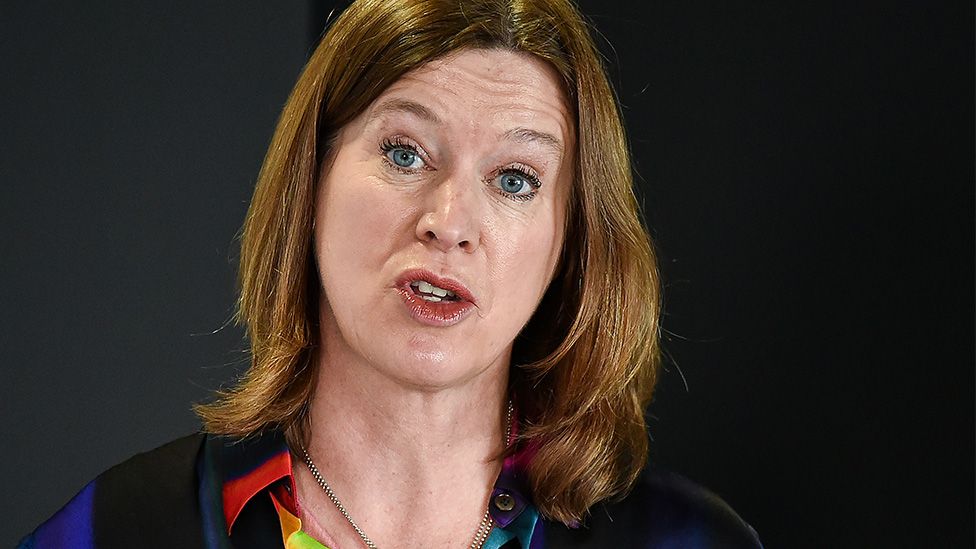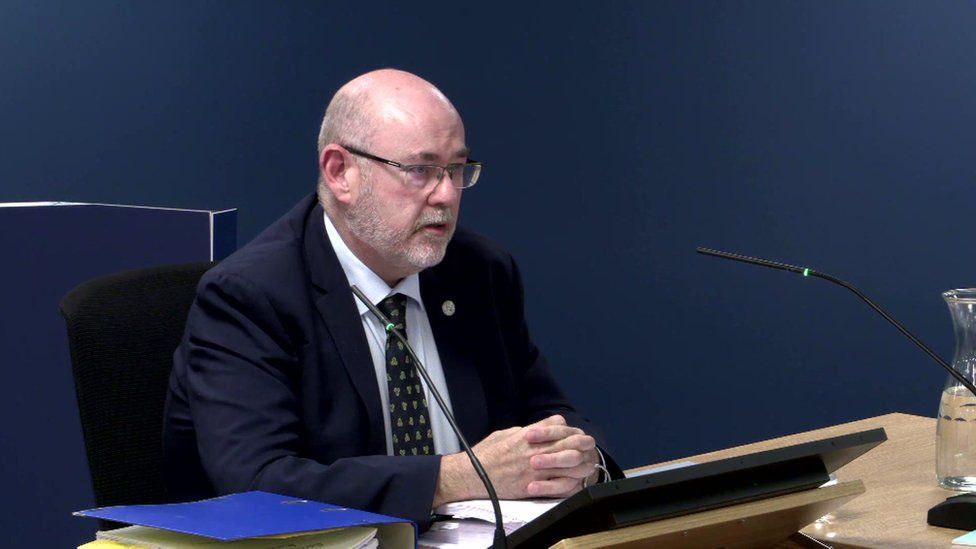The Covid Inquiry has learned that the government's plans for dealing with Covid were "unclear," with some local health officials only learning about any changes to policy from TV news conferences.
The Association of Directors of Public Health's (ADPH) president, Prof. Jim McManus, claimed that central government communication had been "lacking.".
Instead of relying on local teams that already existed, a national system for tracking infected contacts was created from scratch, he claimed.
He continued, "There were parts of central government that did not have a mailing list to contact directors of public health so they physically couldn't contact us for the first few months of the pandemic.
The ADPH represents more than 160 directors of public health throughout the UK who collaborate frequently with law enforcement, the fire department, and other officials to protect public health and respond to emergencies.
In Scotland and Wales, they work for specific NHS boards, whereas in England they are employed by local councils. In Northern Ireland, the director of public health is a government employee who works for ministers.
As the virus spread, Prof. McManus testified before the Covid Inquiry on Wednesday that it became clear that some national officials "had not read their own guidance" and were unclear about the function of local public health officials.
According to him, "sometimes we had no response or communication and we found out about new guidance at the same time as the general public on the 5pm [Downing Street news conference] bulletin.".
He claimed that while the government attempted to set up a "parallel" national system for contact tracing and isolation, the significance of local teams was frequently disregarded, particularly at the beginning of the pandemic.
He continued, "We had experts trained in some of these areas.
"We are familiar with the neighborhood and the community. We could assist areas in avoiding placing a vaccine center in a golf club 1.5 miles from a struggling neighborhood without access to public transportation. ".
Later, Prof McManus asserted, when some local authorities assumed responsibility for test and trace, there was a "marked improvement" in the way the system operated.
He gave the example of plans to move community health workers into hospitals to treat Covid patients as evidence that the pandemic was too frequently seen as an NHS problem rather than a public health problem.
In order to protect the most vulnerable children, health visitors perform vitally important work, he said.
"There would have been serious safeguarding risks and there could have been harm to children if you had removed every health visitor in England and placed them on a Covid ward. ".
Plans to combat a pandemic and lessen their effects on society's most vulnerable groups were described by him as "not sufficient nationally, at any level of the system.". ".

The pressure on Scotland's health system has made it "extremely difficult," according to Dr. Catherine Calderwood, the country's former chief medical officer, earlier in the day.
After breaking Covid rules at the time by going to her vacation home, Dr. Calderwood resigned in April 2020.
She explained to the inquiry, "If you take my own area, the labor ward, the babies keep coming day and night, and we don't have the luxury of saying, 'there's going to be an exercise where we're going to send six of you for mask fitting,' for example.
In testimony, Mark Woolhouse, a professor of infectious disease epidemiology at the University of Edinburgh and a pandemic advisor to the Scottish government, claimed that by concentrating on the possibility of an influenza pandemic in the ten years prior to Covid, the UK had "prepared for the wrong exam.".
The next time, and there will be another time, "it's possible that we'll be dealing with a virus that is much more lethal and much more transmissible," he said.
"I'm not sitting here predicting that this will happen soon in a doomsday manner.
Prof. Woolhouse continued, "But I'm confident enough to tell government that this is something we should be concerned about and prepared for.
- It is about processing what occurred and drawing conclusions.
- There will be no guilty or innocent verdicts.
- Governments are not required to enact any recommendations.
- Although there is no set end date for the inquiry, public hearings are scheduled to last until 2026.
- In addition to the UK-wide investigation, Scotland is conducting a separate one.
Receive BBC News in your inbox every morning by subscribing to our newsletter.







